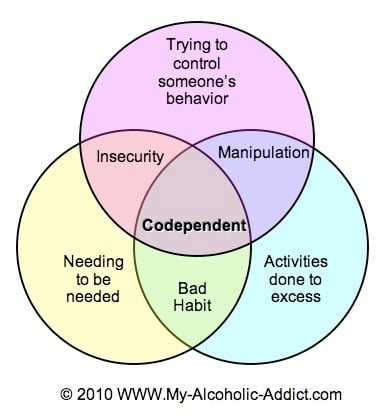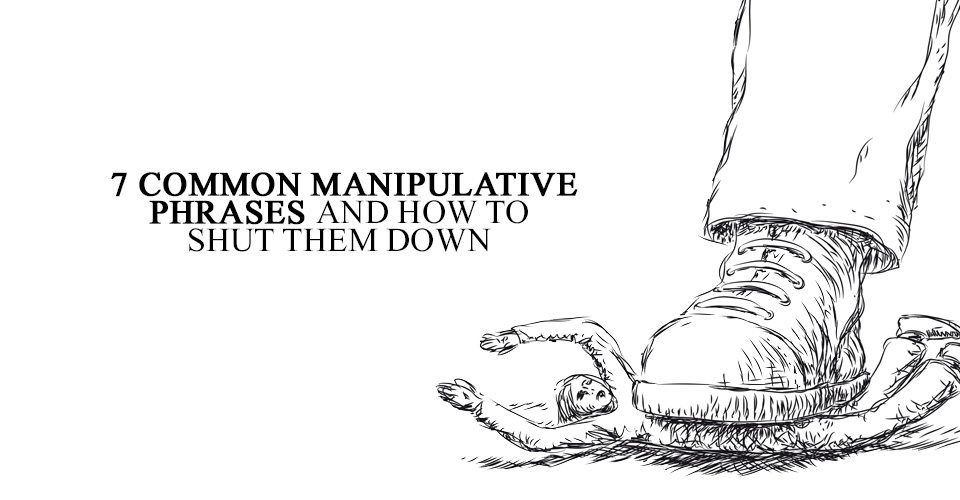Is he manipulative
20 Signs Of Toxic And Manipulative Men
You can find many resources online about toxic and manipulative men. This article is to supplement other research you’ve done and to give you a clear list of signs and red flags you should look for before becoming too involved in a new relationship.
The more aware you are of behaviors specific to toxic, manipulative men the better equipped you are to protect yourself from one. The thing to keep in mind when reading the signs below is that most of these behaviors won’t show up early in a relationship.
Toxic manipulative men only show their true colors once they know you are emotionally invested in them. That is why I warn women to not become too invested in a man, too quickly. Protecting yourself from that kind of toxicity means being able to police your emotions and recognizing the signs when they rear their ugly heads. Good luck with that!
1. Gaslighting and crazy-making.
Gaslighting typically happens very gradually in a relationship; in fact, his actions may seem harmless at first. Over time, however, abusive patterns continue and you can become confused, anxious, isolated, and depressed, and can lose all sense of what is actually happening. Then you’ll start relying on the abusive man more and more to define your reality, which creates a very difficult situation to escape.
If he says and does things that cause confusion or you to feel like you are crazy, you’re being gaslighted. If you’re being gaslighted you’ll feel self-doubt, question whether or not you are being overly emotional, become insecure in your role in the relationship and find yourself apologizing for everything that goes wrong in the relationship. It’s psychologically dangerous, get out!
2. Unable to see things from your perspective.
He says something or does something that causes you emotional pain. You attempt to explain to him how you feel but are met with a blank stare or annoyance. He isn’t someone who can see things from your perspective. He isn’t someone who can understand why his actions had any impact on your, negative or positive.
He is the kind of guy who says to you, “I’m not responsible for your feelings.” If he cheats on you, he wants you to get over it. If he doesn’t show up for a planned date, he accuses you of being uptight and controlling. He is a jerk!
3. The ultimate hypocrite.
“Do as I say, not as I do.” He has extremely high expectations for fidelity, respect, and adoration. After the idealization phase, he will give none of this back to you. He will cheat, lie, criticize, and manipulate. But you are expected to remain perfect, otherwise, you will promptly be replaced and deemed unstable.
4. Pathological lying.
Before you even question him about a subject or situation he’ll have a lie ready to tell you. And, when caught lying, he expresses to remorse or embarrassment. He just tries to lie his way out of the original lie. His life is one big lie and so are his feelings for you.
5. He focuses on your mistakes but ignores his own.
This guy needs you to be perfect and to view him as perfect in spite of his bad behavior. Your mistakes will be brought to your attention. He will expect you to be remorseful and to make changes as he sees fit. He, on the other hand, can do no wrong and you better not forget that.
Your mistakes will be brought to your attention. He will expect you to be remorseful and to make changes as he sees fit. He, on the other hand, can do no wrong and you better not forget that.
6. The meaning of respect is lost on him.
Normal people understand fundamental concepts like honesty and kindness. The toxic man is childlike in his ability to grasp the concept of not only receiving respect but returning it.
He won’t respect your need for time alone or time with family and friends. He doesn’t respect your boundaries, your career or, your desire to go to the bathroom without an audience. You can tell him dinner is promptly at 8:00 and he will show at 9:00. This guy is downright unmannerly, course and contemptible. Get as far away as possible!
7. Needs to be the center of attention.
This guy wants all your attention, 24/7 your life is supposed to revolve around him. His demand for adoration from you is insatiable. In reality, this guy has no identity without you there to constantly build him up. And, it isn’t even about you. Anyone can give him what he needs…attention. You’re only there because you were the first of fifth he found to do his bidding.
And, it isn’t even about you. Anyone can give him what he needs…attention. You’re only there because you were the first of fifth he found to do his bidding.
8. Assigns false emotions to you.
He will dismiss your true feelings and assign you feelings that most often mimic what he is feeling. Psychologist and psychiatrists called this “projection.” Projection is a psychological defense mechanism in which he attributes characteristics he finds unacceptable in himself to another person…you.
For example, he may accuse you of wanting to have an affair or being attracted to a close friend or ex. In reality, it is him who may be having an affair or thinking about an affair or, attracted to someone other than you. He has projected his feelings of shame, guilt or desire for someone else off onto you because subconsciously he knows it’s wrong but can’t emotionally face that in himself.
9. Your gut is constantly telling you to investigate.
He has been caught in enough lies that you’ve finally gotten to the point of believing nothing he says. But you’ve also learned to doubt your own gut feelings so, your turn yourself into a private investigator and start stalking him on social media.
But you’ve also learned to doubt your own gut feelings so, your turn yourself into a private investigator and start stalking him on social media.
Or, maybe following him after work or driving by his home when you two aren’t together. You’re seeking answers to questions and doubts you have that you just can quite explain.
10. Everyone around you thinks he walks on water.
Everyone but you! But there must be something wrong with you if you’re the only one questioning his values, morals, and sincerity. Here is what you need to keep in mind. You’re the only one engaged in an intimate relationship with him. No one sees the side of him you see.
His relationship with those other people is superficial and that is why they don’t see what you see in him!
11. You begin to fear expressing your feelings.
Normal couples argue to resolve issues, but toxic men make it clear that negative conversations will jeopardize the relationship, especially conversations regarding their bad behavior. Any of your attempts to improve communication will typically result in the silent treatment. You apologize and forgive quickly, otherwise, you know he’ll lose interest in you.
Any of your attempts to improve communication will typically result in the silent treatment. You apologize and forgive quickly, otherwise, you know he’ll lose interest in you.
12. He disrespects your boundaries.
Boundaries are guidelines, rules or limits that a person creates to identify for herself what are reasonable, safe and permissible ways for other people to behave around her and how she will respond when someone steps outside those limits.
If he is repeatedly crossing your boundaries, he isn’t willing to discuss boundaries with you, or you notice he is guilt-tripping you for even having boundaries, your relationship is likely very unhealthy and could become abusive if his behaviors continue and escalate.
13. They belittle and dismiss you.
If you point this out, they call you sensitive and crazy. You might begin to feel resentful and upset, but you learn to push away those feelings in favor of maintaining peace. They withhold attention and undermine your self-esteem. After once showering you with nonstop attention and admiration, they suddenly seem completely bored by you.
After once showering you with nonstop attention and admiration, they suddenly seem completely bored by you.
They treat you with silence and become very annoyed that you’re interested in continuing the passionate relationship they created with you. You begin to feel like a chore to them.
14. You’re supposed to be a mind reader.
He doesn’t communicate his needs or plans with you. If he gets pissed because you fail to do something he wanted but you didn’t know about, you’re on the hook because you failed to read his mind.
Guys like this are non-communicators. They are immature romantics who believe, “if she really loved me, she’d know what I need.” You can’t win with this guy because they like to play the victim and what better way to do that than leave you to wonder what the hell they want and need from you.
15. You feel anxious but can’t define why.
Bad relationships will eventually cause anxiety. If you find yourself suddenly feeling unexplained anxiety take a long, hard look at the dynamics of your relationship with him.
If you’re in a relationship with a toxic man you’re most likely constantly stressed out over the state of the relationship, or over-analyzing the constant conflict in the relationship. You probably don’t need meds for anxiety just a new relationship partner!
16. He has a dysfunctional past.
Some toxic men have serious mental health problems and they always have someone to blame them on. If all his exes were bitches, his parents were neglectful and his childhood friends and work friends are all defective…according to him, you can bet his dysfunctional past isn’t about all those people and all about him.
This guy is so messed up that you can bet he will fuck up any relationship he engages in, romantic and otherwise.
17. Stirs the pot, loves conflict.
He is a drama queen! He is always putting his nose into other peoples’ business and conflicts. He isn’t happy and doesn’t want anyone else to be either. He will not be able to get along with your girlfriends. He won’t have friends of his own because he ran them off with his meddling.
He won’t have friends of his own because he ran them off with his meddling.
This guy is addicted to the adrenaline rush he gets from engaging in conflict. If there isn’t conflict going on, he will find a way to start it.
18. He is in LOVE!
When you first meet, things move extremely fast. He tells you how much he has in common with you—how perfect you are for him. After the first date, he has changed his Facebook status to, “in a relationship.”
He constantly initiates communication and seems to be fascinated with you on every level. You met him on July 3rd and he is already planning a Christmas getaway for the two of you after only two weeks. He is all about pinning you down quickly.
By Christmas there will be no trip, he will have lost interest and you’ll be licking your emotional wounds because you fell for his game, hook, line and sinker.
19. Compares you to other people.
They compare you to ex-lovers, friends, family members, and your eventual replacement. When idealizing, they make you feel special by telling you how much better you are than these people. When devaluing, they use these comparisons to make you feel jealous and inferior.
When idealizing, they make you feel special by telling you how much better you are than these people. When devaluing, they use these comparisons to make you feel jealous and inferior.
20. Your admirable qualities become deficiencies.
At first, they appeal to your deepest vanities and vulnerabilities, observing and mimicking exactly what they think you want to hear. But after you’re hooked, they start to use these things against you. You spend more and more time trying to prove yourself worthy to the very same person who once said you were perfect.
FAQs about Toxic, Manipulative Men:
Toxic manipulative men only show their true colors once they know you are emotionally invested in them. That is why I warn women to not become too invested in a man, too quickly. Protecting yourself from that kind of toxicity means being able to police your emotions and recognizing the signs when they rear their ugly heads. Good luck with that!
FAQs:
When do toxic manipulative men reveal themselves?
Toxic manipulative men reveal themselves once they find you are emotionally involved with them. You can only guard against their toxic manipulation if you are able to understand your emotions. Women need to tread carefully when dating and avoid jumping into relationships headlong.
You can only guard against their toxic manipulation if you are able to understand your emotions. Women need to tread carefully when dating and avoid jumping into relationships headlong.
Is he gaslighting me?
When you are confused over what he says and does, feel you are going crazy, and find yourself apologizing to make things right, you are definitely being gaslighted. In such a situation, you will fall victim to self-doubt, question whether your emotions are running too high, and feel insecure in your relationship. Know before it’s too late that gaslighting makes you psychologically sick.
Is he a pathological liar?
He is a pathological liar if he tells you lies even before you finish asking him a question about his whereabouts, not returning your call or not showing up at a scheduled event. If you catch him lying, he will not show remorse for being wrong—instead he will try wriggling out of the situation with more lies.
Why does he accuse me of wanting to have an affair?
He accuses you of wanting to have an affair because he may be having an affair himself. He may also accuse you of being attracted to someone at a time when he may be attracted to someone else. This is called projection. Psychologists and psychiatrists describe it as a psychological defense mechanism in which a person attributes characteristics he finds unacceptable in himself to another person.
He may also accuse you of being attracted to someone at a time when he may be attracted to someone else. This is called projection. Psychologists and psychiatrists describe it as a psychological defense mechanism in which a person attributes characteristics he finds unacceptable in himself to another person.
Why am I afraid to express my feelings around him?
You may be dealing with a toxic man if you are afraid to express your feelings around him. Toxic men avoid what they dub negative conversations, especially when these revolve around their bad behaviors. All you get is the silent treatment when you try telling him how hurt you feel when he does something wrong. In the end, it will be you apologizing to him for the sake of keeping your relationship normal.
How to Tell If Someone Is Manipulating You—And What to Do
If you’ve ever felt like something is off in a close relationship or casual encounter—you’re being pressured, controlled or even feel like you’re questioning yourself more than usual—it could be manipulation.
“Manipulation is an emotionally unhealthy psychological strategy used by people who are incapable of asking for what they want and need in a direct way,” says Sharie Stines, a California-based therapist who specializes in abuse and toxic relationships. “People who are trying to manipulate others are trying to control others.”
There are many different forms of manipulation, ranging from a pushy salesperson to an emotionally abusive partner—and some behaviors are easier to spot than others.
Here, experts explain the telltale signs that you could be the subject of manipulation.
You feel fear, obligation and guiltManipulative behavior involves three factors, according to Stines: fear, obligation and guilt. “When you are being manipulated by someone you are being psychologically coerced into doing something you probably don’t really want to do,” she says. You might feel scared to do it, obligated to do it, or guilty about not doing it.
She points to two common manipulators: “the bully” and “the victim. ” A bully makes you feel fearful and might use aggression, threats and intimidation to control you, she says. The victim engenders a feeling of guilt in their target. “The victim usually acts hurt,” Stine says. But while manipulators often play the victim, the reality is that they are the ones who have caused the problem, she adds.
” A bully makes you feel fearful and might use aggression, threats and intimidation to control you, she says. The victim engenders a feeling of guilt in their target. “The victim usually acts hurt,” Stine says. But while manipulators often play the victim, the reality is that they are the ones who have caused the problem, she adds.
A person who is targeted by manipulators who play the victim often try to help the manipulator in order to stop feeling guilty, Stines says. Targets of this kind of manipulation often feel responsible for helping the victim by doing whatever they can to stop their suffering.
You’re questioning yourselfThe term “gaslighting” is often used to identify manipulation that gets people to question themselves, their reality, memory or thoughts. A manipulative person might twist what you say and make it about them, hijack the conversation or make you feel like you’ve done something wrong when you’re not quite sure you have, according to Stines.
If you’re being gaslighted, you might feel a false sense of guilt or defensiveness—like you failed completely or must have done something wrong when, in reality, that’s not the case, according to Stines.
“Manipulators blame,” she says. “They don’t take responsibility.”
There are strings attached“If a favor is not done for you just because, then it isn’t ‘for fun and for free,’” says Stines. “If there are strings attached, then manipulation is occurring.”
Stines refers to one type of manipulator as ‘Mr. Nice Guy.’ This person might be helpful and do a lot of favors for other people. “It is very confusing because you don’t realize anything negative is going on,” she says. “But, on the other hand, with every good deed, there is a string attached—an expectation.” If you don’t meet the manipulator’s expectation, you will be made out to be ungrateful, Stines says.
In fact, exploiting the norms and expectations of reciprocity is one of the most common forms of manipulation, says Jay Olson, a doctoral researcher studying manipulation at McGill University.
A salesperson, for example, might make it seem like because he or she gave you a deal, you should buy the product. In a relationship, a partner might buy you flowers then request something in return. “These tactics work because they abuse social norms,” says Olson. “It’s normal to reciprocate favors, but even when someone does one insincerely, we often still feel compelled to reciprocate and comply.”
Get the latest career, relationship and wellness advice to enrich your life: sign up for TIME’s Living newsletter.
You notice the ‘foot-in-the-door’ and ‘door-in-the-face’ techniquesOften, manipulators try one of two tactics, says Olson. The first is the foot-in-the-door technique, in which someone starts with a small and reasonable request—like, do you have the time?—which then leads into a larger request—like I need $10 for a taxi. “This is commonly used in street scams,” Olson says.
The door-in-the-face technique is the opposite—it involves someone making a big request, having it rejected, then making a smaller one, Olson explains.
Someone doing contract work, for example, may ask you for a large sum of money up front, and then after you decline, will ask for a smaller amount, he says. This works because, following the larger request, the smaller appeal seems reasonable comparatively, Olson says.
What to do if you think you’re being manipulatedHow you react to manipulation depends in large part on what kind of manipulation you’re facing.
If you think you or someone you know is in a manipulative or even abusive relationship, experts suggest seeking treatment from a therapist or help from organizations like the National Domestic Violence Hotline at 1−800−799−7233. A good support group can help, too, says Stines. “People in toxic relationships need to hear counterpoints somewhere. They are conditioned to think the interactions are normal. Someone needs to help them break out of that assumption.”
For other forms of manipulation, Stines suggests trying to not allow the manipulative behavior to affect you personally. “Use the motto, ‘Observe don’t absorb,’” she notes. After all: “We aren’t responsible for anyone else’s feelings.”
“Use the motto, ‘Observe don’t absorb,’” she notes. After all: “We aren’t responsible for anyone else’s feelings.”
Often, establishing boundaries can play an important role in keeping manipulation at bay. “People who manipulate have lousy boundaries,” Stines says. “You have your own volitional experience as a human being and you need to know where you end and the other person begins. Manipulators often have either boundaries that are too rigid or enmeshed boundaries.”
In a manipulative situation, it can also help to delay your response, according to Olson. For example, refrain from signing a contract at first glance, don’t make a large purchase without thinking it through and avoid making major relationship decisions the first time they’re brought up, he suggests. “’Sleeping on it’” is often the best solution to avoid being manipulated,” Olson adds.
Contact us at [email protected].
Hidden influence: what to do if someone tries to manipulate you
Psychologist explains the dangers of manipulation and explains how to recognize it and successfully defend yourself.
Manipulation is an attempt to covertly influence a person for the sake of personal goals and interests, and they are found in all spheres of life.
"Manipulation can be everywhere where an impact on a person is possible. Not only family and work, we can talk about large-scale impacts on society at the level of states or companies," says Associate Professor of the Department of Social Psychology, Faculty of Psychology, Moscow State University. M. V. Lomonosov Alexander Rykiel.
Not every hidden influence can be called manipulation, for example, if a person tries to trick you into doing something for your benefit, this is not formally manipulation.
According to Alexander Rykiel, there are no universal phrases that allow you to quickly understand that you are being manipulated. The manipulator can use a huge number of different methods of influence.
"One of the tricks can be flattery. A person says: "Here you, as an experienced specialist, of course, understand better than me that . .." - and further promotes his interests, but because you are flattered, you feel the need agree or follow the recommendation,” explains Alexander Rykiel.
.." - and further promotes his interests, but because you are flattered, you feel the need agree or follow the recommendation,” explains Alexander Rykiel.
Sometimes the manipulator uses an appeal to authority. “They say to you: “Live with me, defend your Ph. status. This is also manipulation,” says the psychologist.
You can name a huge number of situations in which manipulation occurs, but they all have one thing in common: the manipulator forces you to act against your will, pushing you to actions and judgments artificially. Therefore, it is so important, when analyzing the decisions made, to pay attention to whether we made them on our own.
"The terrible effect of manipulation is that you are addicted to it, like a drug. If you are used to acting according to a certain scenario in interaction with a person, the likelihood that you will get off this needle is minimal," says Alexander Rykiel.
If the manipulation takes place in a social context, such as within a work relationship, then the addictive effect is enhanced by the tacit agreement of the collective.
It is important to stop manipulative behavior as early as possible, the more time passes, the more effort will have to be put into it.
"The main feature of a manipulator is that he treats people in a consumerist way and does not build relationships on an equal footing. Manipulators do not believe in purity and trusting intonations in human relationships. They act this way because they think that everyone else can act this way with them ", - says Alexander Rykiel.
The most effective way to stop a manipulator is to let him know that you understand exactly what he is doing and that you are not suitable for the role of a victim. To do this, it is not necessary to bring the situation to an open conflict, for a start it can be explained that you respond better to requests made directly than to attempts to shame you or crush you with authority.
If you think that someone you know has become a victim of a manipulator, you can also try to help him.
"Do a simple exercise with the victim. Ask why he agrees to such an interaction, why he decided to act in this way, how independently he made this decision, what would happen if the decision would have been different. It is extremely important not to engage in this persuasion of a person, so as not to turn one manipulation into a series of some other subsequent influences. It is important that this becomes the subject of internal reflection, "advises Alexander Rykiel.
Ask why he agrees to such an interaction, why he decided to act in this way, how independently he made this decision, what would happen if the decision would have been different. It is extremely important not to engage in this persuasion of a person, so as not to turn one manipulation into a series of some other subsequent influences. It is important that this becomes the subject of internal reflection, "advises Alexander Rykiel.
Alena Fokeeva
Psychologists told how men manipulate women
Psychologists told how men manipulate women | Nizhny Novgorod truthMap of new public transport routes in Nizhny Novgorod
Valid from August 23, 2022.
Download
Home | Society | Psychologists told how men manipulate women0003
Society family
Photo: maplesfamilylaw. com
com
Manipulators are common among men
Read us at
In general, it is believed that the weaker sex usually resorts to various kinds of manipulations in relationships.
They say that these are women trying to subjugate a man through various tricks and tricks. The strong sex does not allow itself to be similar and always plays openly in relationships.
But in fact, manipulators are also often found among men.
How to recognize them in time?
Noodles on the ears
It's no secret that women love with their ears. A well-timed compliment can sometimes work wonders.
And many men wisely use this feminine weakness for beautiful words in order to achieve what they want - from a joint dinner to a joint night.
But compliments are light artillery compared to beautiful promises with which men often turn the heads of gullible fools. Moreover, these promises do not in the least prevent the man from ruthlessly abandoning the young lady, leaving her perplexed: how is it, he himself said that he loves!
Opposition
Of course, this does not mean that any man who compliments you, certainly wants to achieve something from you. It is possible that he sincerely admires the way you look, cook, sing, etc. Therefore, accept compliments with gratitude, just do not feel obligated for them.
But be careful with promises of a brighter future. As experts have said more than once, and even the representatives of the stronger sex themselves, if a man talks about love, this for the most part does not mean anything. Well, other than the fact that he's trying to win you over. For what purposes, that is the question.
Well, other than the fact that he's trying to win you over. For what purposes, that is the question.
Remember - normal, reliable men who you can rely on are usually not distinguished by eloquence. And when they are in love, they are completely lost, withdraw into themselves, become timid.
Therefore, as little as possible be fooled by the beautiful words of men and pay attention only to their actions.
You are my savior
For many women, the concepts of love and pity are closely intertwined. Therefore, they readily rush to help a man - they make sure that he does not drink, does not smoke, they get him a job, they come up with a goal for him, help him realize it, etc.
Some representatives of the stronger sex take advantage of this, pretending to be an eternal victim - he was once ruthlessly abandoned and since then he has lost faith in women, those around him do not appreciate his talent, and therefore he cannot succeed in any way, he is infinitely lonely and unhappy, etc. Whatever the legend, its main result is that a man proclaims a woman as his savior and gives her the right to solve his problems.
Whatever the legend, its main result is that a man proclaims a woman as his savior and gives her the right to solve his problems.
For many women, this gives the illusion of their own need, and they readily fall for this bait. As a result, next to them is either a frank gigolo or an infantile consumer.
Opposition
From the very beginning, be wary of any attempts by a man to involve you in solving his problems, especially material ones. Remember: a normal man will never demand material support from a woman.
You are only mine
Many women are firmly convinced that jealousy is one of the manifestations of love. And despite the fact that psychologists of all stripes have erased their tongues, proving that this is not so, women who believe that “jealous means they love” are not getting smaller.
Some men take advantage of this ruthlessly. They do not bother themselves with other proofs of love, but simply periodically arrange scenes of jealousy, causing gullible women to feel that they are valued.
Often, with the help of jealousy, an insecure man achieves absolute power over a woman. Concentrating attention only on himself, he deliberately makes a woman dependent and in need of one person, on whom all her attention, all her life energy - her whole life will be focused.
By forcing his chosen one to constantly make excuses, a man cultivates in her a guilt complex, which is one of the most effective manipulation tools.
And, by the way, it is men who often torment their wives with jealousy, who themselves are not inclined to fidelity. Causing a feeling of guilt in his wife, on the one hand, he frees himself from him, and on the other hand, he simply distracts her attention from his own adventures.
Opposition
Do not try to make excuses and provide evidence of your loyalty. This will only inflame the jealous person even more.
Do not give up your interests and socializing with friends, but always let your husband know about your plans.
Well, try to give him self-confidence in other ways - demonstrate faith in him, support his undertakings, admire his successes.
I pay in cash
Many men use money as a universal weapon to win women's hearts. Spending money on a woman he likes, a man, as it were, pays for her favor. Some women readily accept such conditions of the game.
It happens that with the help of gifts and spending, a man tries to bind a woman to him more tightly. In the future, he will seek to make her financially dependent on himself.
Some in these cases insist that the wife quit working, while others, unable to provide for their families on their own, strive to control the wife's salary and spending.
In any case, money turns into a form of control and pressure on the missus. Sometimes women have to literally beg their husband for money for unnecessary, in his opinion, spending. And any purchases that are not directly related to the household can fall into this category.
As a result, a woman dependent on her husband's income tries to compensate for her impotence and control her husband, also resorting to manipulation. For example, speculating on children or posing as an unfortunate sufferer.
Opposition
Never make your favor dependent on gifts given or money spent on you. And, of course, if possible, try not to fall into financial dependence on a man.
Everything is wrong
Many men use constant criticism as a manipulation. They criticize their wife or girlfriend in everything from the way they dress to the ability to cook. Thus, such men again try to assert themselves at the expense of the chosen one and cultivate an inferiority complex in her.
Opposition
Of course, this does not mean that if a husband reprimands you, he will certainly try to manipulate you. But it is very easy to distinguish constructive criticism from manipulation. The first always assumes the existence of a way out of the situation, the second is designed to cause a feeling of guilt.
The first always assumes the existence of a way out of the situation, the second is designed to cause a feeling of guilt.
If a husband uses criticism as a means of control, experts advise to distance himself and not to be filled with guilt in any case.
Again, try to raise his self-esteem. Praise him more often and let's understand how dear he is to you. Perhaps then the desire to assert oneself through criticism will disappear from the spouse by itself.
...Recognizing the manipulator is not easy. After all, he very often seeks to achieve his goals, hiding behind yours.
- In fact, no one's interests are important to him, except for his own, - warns Natalya Rasskazova. - The manipulator uses you exclusively for his own purposes.
To be able to resist the manipulator, you need to learn to take into account not words, but actions. In the case of men, this is especially important, because only the actions of a man speak of his true feelings. And a truly loving man will never allow himself to humiliate the woman he loves.














